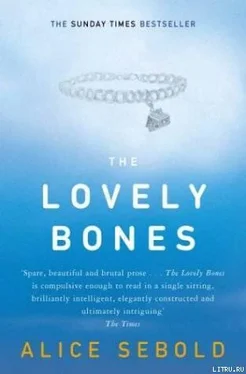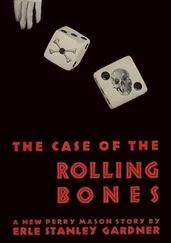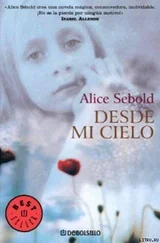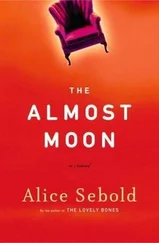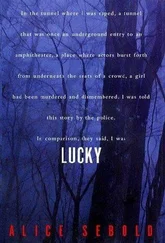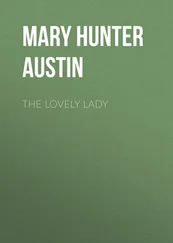She traced a new line on my father’s face. She liked the silvering of his temples.
Shortly after midnight, she fell asleep after trying as hard as she could to keep her eyes open. To hold on to everything all at once while she looked at that face, so that when he woke she could say goodbye.
When her eyes were closed and they both slept silently together, I whispered to them:
Stones and bones;
snow and frost;
seeds and beans and polliwogs.
Paths and twigs, assorted kisses,
We all know who Susie misses…
Around two A.M. it began to rain, and it rained down on the hospital and on my old home and in my heaven. On the tin-roofed shack where Mr. Harvey slept, it was raining too. As the rain beat its tiny hammers above his head, he dreamed. He did not dream of the girl whose remains had been removed and were now being analyzed but of Lindsey Salmon, of the 5! 5! 5! hitting the border of elderberry. He had this dream whenever he felt threatened. It had been in the flash of her soccer shirt that his life had begun to spin out of control.
It was near four when I saw my father’s eyes open and saw him feel the warmth of my mother’s breath on his cheek even before he knew she was asleep. We wished together that he could hold her, but he was too weak. There was another way and he took it. He would tell her the things he had felt after my death – the things that came into his mind so frequendy but that no one knew but me.
But he did not want to wake her. The hospital was silent except for the sound of rain. Rain was following him, he felt, darkness and damp – he thought of Lindsey and Samuel at the doorway, soaked and smiling, having run all that way to relieve him. He often found himself repeatedly commanding himself back to center. Lindsey. Lindsey. Lindsey. Buckley. Buckley. Buckley.
The way the rain looked outside the windows, lit up in circular patches by the lights in the hospital parking lot, reminded him of the movies he had gone to see as a boy – Hollywood rain. He closed his eyes with the breath of my mother reassuringly exhaling against his cheek and listened to it, the slight patter on the slim metal window sills, and then he heard the sound of birds – small birds chirping, but he could not see them. And the idea of this, that there might be a nest right outside his window where baby birds had woken in the rain and found their mother gone, made him want to rescue them. He felt my mother’s limp fingers, which had loosened their hold on his hand in sleep. She was here, and this time, despite all, he was going to let her be who she was.
It was then that I slipped inside the room with my mother and father. I was present somehow, as a person, in a way I had never been. I had always hovered but had never stood beside them.
I made myself small in the darkness, unable to know if I could be seen. I had left him for hours every day for eight and a half years as I had left my mother or Ruth and Ray, my brother and sister, and certainly Mr. Harvey, but he, I now saw, had never left me. His devotion to me had made me know again and again that I had been beloved. In the warm light of my father’s love I had remained Susie Salmon – a girl with my whole life in front of me.
“I thought if I was very quiet I would hear you,” he whispered. “If I was still enough you might come back.”
“Jack?” my mother said, waking. “I must have fallen asleep.”
“It’s wonderful to have you back,” he said.
And my mother looked at him. Everything stripped away. “How do you do it?” she asked.
“There’s no choice, Abbie,” he said. “What else can I do?”
“Go away, start over again,” she said.
“Did it work?”
They were silent. I reached out my hand and faded away.
“Why don’t you come lie down up here?” my father said. “We have a little time before the enforcers come on duty and kick you out.”
She didn’t move.
“They’ve been nice to me,” she said. “Nurse Eliot helped me put all the flowers in water while you slept.”
He looked around him and made out their shapes. “Daffodils,” he said.
“It’s Susie’s flower.”
My father smiled beautifully. “See,” he said, “that’s how. You live in the face of it, by giving her a flower.”
“That’s so sad,” my mother said.
“Yes,” he said, “it is.”
My mother had to balance somewhat precariously on one hip near the edge of his hospital bed, but they managed. They managed to stretch out together beside each other so they could stare into each other’s eyes.
“How was it seeing Buckley and Lindsey?”
“Incredibly hard,” she said.
They were silent for a moment and he squeezed her hand.
“You look so different,” he said.
“You mean older.”
I watched him reach up and take a strand of my mother’s hair and loop it around her ear. “I fell in love with you again while you were away,” he said.
I realized how much I wished I could be where my mother was. His love for my mother wasn’t about looking back and loving something that would never change. It was about loving my mother for everything – for her brokenness and her fleeing, for her being there right then in that moment before the sun rose and the hospital staff came in. It was about touching that hair with the side of his fingertip, and knowing yet plumbing fearlessly the depths of her ocean eyes.
My mother could not bring herself to say “I love you.”
“Will you stay?” he asked.
“For a while.”
This was something.
“Good,” he said. “So what did you say when people asked you about family in California?”
“Out loud I said I had two children. Silently I said three. I always felt like apologizing to her for that.”
“Did you mention a husband?” he asked.
And she looked at him. “No.”
“Man,” he said.
“I didn’t come back to pretend, Jack,” she said.
“Why did you come back?”
“My mother called me. She said it was a heart attack and I thought about your father.”
“Because I might die?”
“Yes.”
“You were sleeping,” he said. “You didn’t see her.”
“Who?”
“Someone came in the room and then left. I think it was Susie.”
“Jack?” my mother asked, but her alarm was only at half-mast.
“Don’t tell me you don’t see her.”
She let go.
“I see her everywhere,” she said, breathing out her relief. “Even in California she was everywhere. Boarding buses or on the streets outside schools when I drove by. I’d see her hair but it didn’t match the face or I’d see her body or the way she moved. I’d see older sisters and their little brothers, or two girls that looked like sisters and I imagined what Lindsey wouldn’t have in her life – the whole relationship gone for her and for Buckley, and then that would just hit me, because I had left too. It would just spin onto you and even to my mother.”
“She’s been great,” he said, “a rock. A spongelike rock, but a rock.”
“So I gather.”
“So if I tell you that Susie was in the room ten minutes ago, what would you say?”
“I’d say you were insane and you were probably right.”
My father reached up and traced the line of my mother’s nose and brought his finger over her two lips. As he did, the lips parted ever so slightly.
“You have to lean down,” he said, “I’m still a sick man.”
And I watched as my parents kissed. They kept their eyes open as they did, and my mother was the one to cry first, the tears dropping down onto my father’s cheeks until he wept too.
After I left my parents in the hospital, I went to watch Ray Singh. We had been fourteen together, he and I. Now I saw his head on his pillow, dark hair on yellow sheets, dark skin on yellow sheets. I had always been in love with him. I counted the lashes of each closed eye. He had been my almost, my might-have-been, and I did not want to leave him any more than I did my family.
Читать дальше
